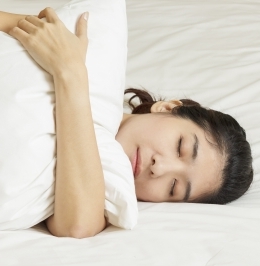A New Discovery about the link between Stress, Sleep and Healing
If a client is struggling with several chronic conditions where their problems are growing, I often find out that they aren’t sleeping well.
Sleep is vital for our bodies to repair.
Why?
Our bodies operate in two main modes. We have an autonomic nervous system that operates either in a rest and digest state, called the parasympathetic nervous system, or the fight and flight state, called the sympathetic nervous system. Our bodies cannot operate in both modes simultaneously. By default, the parasympathetic nervous system turns off the sympathetic nervous system.
Our bodies need to be able to default to the parasympathetic state in order to heal. And a lack of sleep might indicate that we can’t relax enough for our bodies to repair. Our bodies cannot both be in fight or flight, and rest and digest at the same time.
We have also known that sleep helps solidify what we’ve learned, and that our brains detoxify during sleep.
But recently, a new discovery at the University of Rochester shows a clear demonstration of how stress inhibits both our ability to sleep, and our ability to heal.
Read MoreFive Reasons Why Sleep is Imperative
One of the best things we can do for ourselves is get enough sleep. Yet, in the U.S., 50% of adults don’t get enough sleep, and 70% of teenagers are sleep deprived!
In America, we value productivity and play so highly, that we tend to dismiss the value of rejuvenation. Some of us think sleep is a waste of time. We might have a youthful optimism about sleep. We often stay up later than we should, and fool ourselves into believing we will be fine, yet the consequences of sleep deprivation can be dire!
Most of us are aware of the more immediate symptoms of sleep deprivation. We don’t react as quickly, think as well, it can be harder to concentrate, it can make us moody and irritable. And the more tired we are, the more susceptible we are to falling asleep. If we are operating heavy machinery, like a car, that could have dire consequences.
Interestingly, research shows that after 3 days of sleep deprivation, we seem to lose the awareness that we are sleep deprived. Unbeknownst to us, our judgment becomes impaired. We seem to settle into a new normal and deceive ourselves into thinking we are fine, despite the fact that we are still experiencing the same symptoms!
are fine, despite the fact that we are still experiencing the same symptoms!
If we survive the short-term effects of sleep deprivation, over the long term, we are increasing our accumulative stress burden and our risk of chronic diseases, and destroying our brain.
These are my five most compelling reasons for getting a good night’s sleep.
Read MoreA Deficiency MOST OF US Have, But Don’t Know About
If you have pain, having trouble sleeping or an autoimmune disorder, has your doctor ever discussed the possibility that you might have a magnetic field deficiency?
Probably not.
Yet a magnetic field deficiency could a underlie a huge range of symptoms associated with auto-immune disorders as well as problems with mental and cognitive health such as depression, anxiety and ADHD.
And in fact, ongoing research in Japan since the 1950’s has shown using magnets that exposure to magnetism is essential for our well-being.
So why do most of us have a magnetic field deficiency?
Read More





